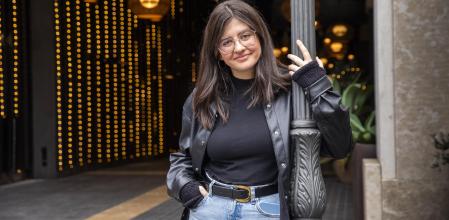
Author Julie Gilbert Discusses the Writing of Her New Book ‘Giant Love’
Julie Gilbert Today, we delve into the enduring relevance of the themes explored by Pulitzer Prize -winning author Edna Ferber
If seeing were easy, we wouldn’t need poetry. That’s one of the implications of Ama Codjoe’s startling debut, Bluest Nude . The poems are portraits—glimpses—of a poet who wants “to be seen clearly or not at all.” So the voice in “Poem After Betye Saar’s The Liberation of Aunt Jemima ” puts it this way: “Gonna try on my nakedness like a silk kimono”—and it’s a poem that really rips, and makes an argument for a kind of disarmament by way of openness, which is vulnerability, another kind of nakedness. A silk kimono, cuffed jeans, Timberlands, a “spa-provided robe,” “velvet robes,” “the coat hung gently / on the hook”—clothes are everywhere in this book, like so many versions of a “carapace” that both protects and hides the being within, and also “the bruises I conceal with makeup and denial.” The desire, attended upon by a fear that is partly the work of a culture of shame and partly the natural labor of any life, is to shed that carapace and be known, to unhook from the strictures and be freer, or nearer a state of rest, or stately and alive amidst all the pressure and poise of life’s soul-dulling motions. It is a desire to have a chance to grieve or be joyful, a chance to draw on eros against the entropy. In several poems the speaker is undoing herself, sartorially and spiritually. “After a Year of Forgetting,” for instance, begins with disclosure: Now I will learn how to […]
Click here to view original web page at Short Conversations with Poets: Ama Codjoe
© 2022, wcadmin. All rights reserved, Writers Critique, LLC Unless otherwise noted, all posts remain copyright of their respective authors.

Julie Gilbert Today, we delve into the enduring relevance of the themes explored by Pulitzer Prize -winning author Edna Ferber

The Mallorcan Joana Marcús is a young bestseller in Spain and America, writer of young adult novels with a romantic


